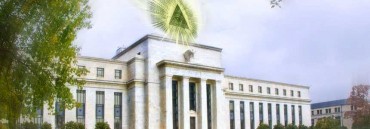DEFINITION of Federal Reserve bank
Federal Reserve bank or FED is the central bank in charge of monetary and financial stability in the United States.
WHAT IT IS IN ESSENCE
It is part of a wider system known as the Federal Reserve system with 12 regional central banks. They have the location in major cities across the US. The Federal Reserve is independent of the US government. And its decisions do not have to pass through any governmental persons or institutions before becoming ratified. Its Board of Governors is appointed by the President.
That makes it the most powerful single actor in the U.S. economy and thus the world. It is so complicated that some consider it a “secret society” that controls the world’s money. Central banks do manage the money supply around the globe. That is their job.
But still, one of the more mysterious areas of the economy is the role of the Fed. It is the gatekeeper of the U.S. economy. It is the central bank of the United States. At the same time, it is the bank of banks and the bank of the U.S. government. The Fed regulates financial institutions, manages the nation’s money and influences the economy. It is raising and lowering interest rates, creating money and using a few other tricks. The Fed can either stimulate or slow down the economy. Its guidance helps maintain low inflation, high employment rates, and manufacturing output.
HOW TO USE
Technically, member commercial banks own the Federal Reserve. They hold shares of the 12 Federal Reserve banks. But that doesn’t give them any power because they don’t vote. Instead, the Board and FOMC make the Fed’s decisions. The Fed is independent because those decisions are based on research.
The Fed directly affects your stock and bond mutual funds and your loan rates. By having such an influence on the economy, the Fed also indirectly affects your home’s value. And even your chances of being laid off or rehired.

